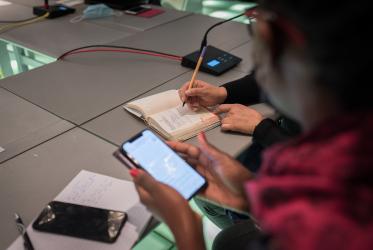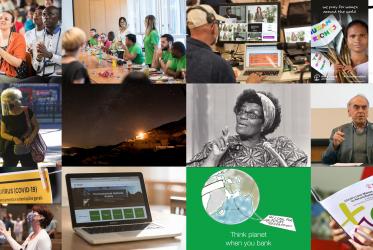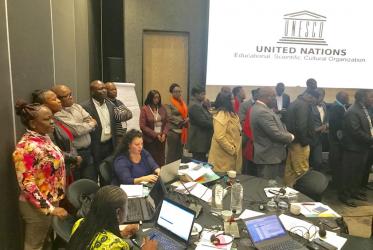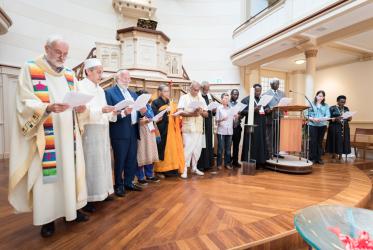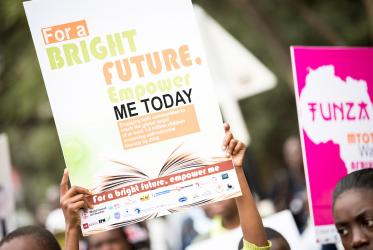Displaying 1 - 20 of 52
Knowledge of gender roles deepens in Togo
03 June 2019
A faith-based, holistic approach to HIV and AIDS-care
13 March 2019
Faith and HIV treatment go hand in hand
06 March 2019
Turning mercy and compassion into action
04 March 2019
On the journey to HIV – bridging gaps, debunking myths
21 February 2019
Media invite: Global collaboration on migrants, refugees and HIV
19 February 2019
WCC hones training on attitudes toward HIV treatment
06 December 2018
What difference does dressing in black make?
02 August 2018
Working toward an AIDS-free generation
26 July 2018
Building bridges of faith in the HIV response
25 July 2018
Building Bridges in the global HIV response
25 July 2018
